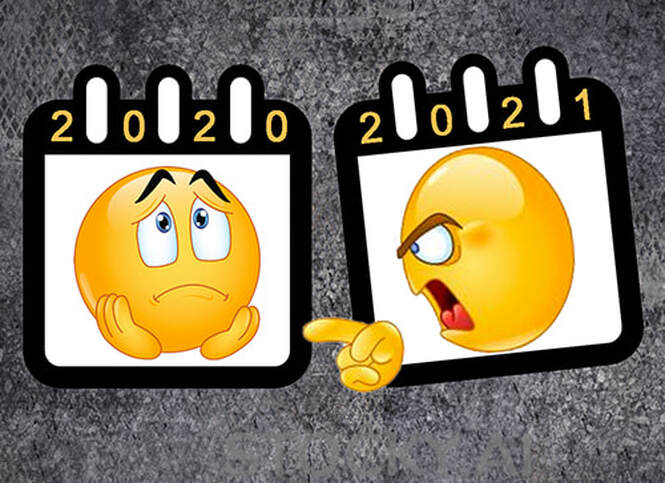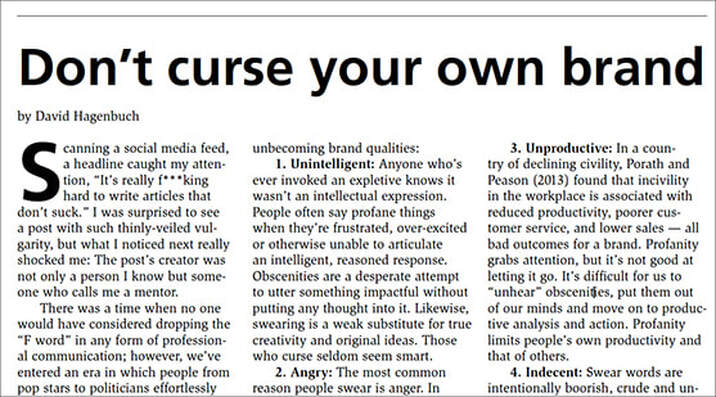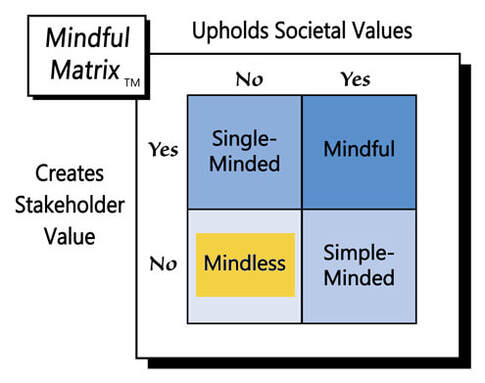author of Honorable Influence - founder of Mindful Marketing
One might guess the campaign comes from a company like Budweiser, which a few years ago ran an infamous Super Bowl ad featuring outspoken British actress Helen Mirren who delivered a caustic anti-drunk-driving rant that had parents rushing to cover their kids ears. Amazingly, the current profanity-laced campaign is from the Mental Health Coalition.
Actually, “laced” is an understatement. The 90-second spot’s central theme and action are the F-word and its accompanying hand gesture. Why so much obscenity? The premise is that since people have suffered so much over the last 12 months from a global pandemic, racial injustice, and an extremely combative election, the best thing to do is to blow off steam by telling 2020 exactly what we thought of it.
The ad ends with a fittingly obscene call-to-action: “Text [middle finger emoji] to 1-877-EFF-THIS and donate $5 to the Mental Health Coalition.”
Why would the Mental Health Coalition want to connect its mission and brand to cursing? The rationale is not as tenuous as you might first think. In fact, there’s a body of literature that suggests that expressing anger through swearing is good for mental health.
One study, which asked participants to submerse their hands in ice water, discovered that swearing increased pain tolerance by nearly 50%. Other research found that people could achieve greater physical performance, pedaling a bike, when employing profanity.
Writing for Psychology Today, Neel Burton, M.D., a psychiatrist and philosopher who teaches in Oxford England, offers “The seven best reasons for swearing,” which he suggests are:
- Pain relief
- Power and control
- Non-violent retribution
- Humor
- Peer and social bonding
- Self-expression
- Improved psychological and physical health
It’s hard to argue against empirical science and respected health professionals, but it seems that the preceding research and writing gives less than adequate treatment to a pair of important considerations, which the following two questions address:
1) What’s the long-term impact of swearing on self-concept? Even if uttering a curse word helps reduce pain in the moment, it seems that swearing could affect one’s extended mental health, which is partly a function of others’ perceptions of us.
First, to be forthright and hopefully avoid seeming self-righteous: I have sworn. I’m not sure that any of those irreverent expressions helped me in the moment, but one thing is certain: I never felt good afterward about what I said; rather, I regretted each of those instances.
While it’s uncomfortable for me to admit that I’ve sworn, it would be very painful if I had to think of myself as ‘a person who swears,’ and it would be unacceptable if I in some way encouraged others to have such a perception of me. I don’t want to swear and, for various reasons that include my faith, I would never want swearing to be something that defines me.
A few years ago, triggered by what I saw as a troubling increase in casual cursing, I wrote an article for The Marketplace, “Don’t curse your own brand.” In the piece I identified five adjectives, or “unbecoming brand qualities,” that profanity projects: unintelligent, angry, unproductive, indecent, and untrustworthy.
Granted, it may be more important for some people/professions to maintain the impression of piety than it is for others. Still, a vulgar vocabulary fuels the preceding unfavorable perceptions in others, which is hard to believe have a positive net impact on anyone’s self-concept.
2) What’s the impact of profanity on others? Almost all of the research and writing of others I referenced above suggests that ‘You should swear because it’s good for you.’ Largely missing in the analyses is the affect that one’s cursing has on those exposed to it, especially if the unpleasantries are directed at them.
Burton does mention that swearing can foster “peer and social bonding.” I believe there are better ways to foster social bonds than swearing, but I can understand how cursing could work to that end, if it’s ‘friendly’ and mutually accepted.
In most instances, though, being on the receiving end of a curse word is not appealing. That’s why in any kind of potentially volatile situation, from a customer service encounter to a hostage negotiation, swearing rarely helps. In fact, it usually increases the tension by making people more uncomfortable, angry, or upset.
Overlooking the impact of cursing on others is probably the biggest irony of the Mental Health Coalition’s ad campaign. On the organization’s own website, its homepage expresses an important truth: “The language we use is powerful, so let’s talk about it.” Yes, words are powerful, and, contrary to the “sticks and stones” adage, poorly chosen ones can hurt deeply.
Of course, being bullied or shamed can’t be good for anyone’s mental health, but how that belittling often occurs is particularly pertinent here. A report on workplace bullying by Safe Work Australia found that “The most common forms of bullying included being sworn at or yelled at (37.2 per cent).” Others affirm the connection between cursing and bullying, for instance:
- “Shouting and swearing while doing criticising is bullying” (Business-Live.Co.UK)
- An example of bullying is “yelling or using profanity” (Canadian Centre for Occupational Health and Safety)
- A report from an Anita Hill-led Hollywood Commission for Eliminating Harassment and Advancing Equality in the Workplace identified “swearing” as a specific act of bullying that with other undesirable actions can serve as “a gateway to sexual harassment and other abusive conduct.”
To summarize:
Cursing --> Bullying --> Low Self-Concept --> Poor Mental Health
These relationships are a big miss of the ad campaign, but there’s one more notable fail: Tourette syndrome, “a neurological disorder characterized by repetitive, stereotyped, involuntary movements and vocalizations called tics.” Though rare, some individuals with the disorder experience coprolalia, which includes “uttering socially inappropriate words such as swearing.”
Although Tourette’s is a disorder of the nervous system, not a mental illness, one can imagine that people who suffer from the syndrome are easy targets for bullies, and that those social interactions could be especially strained if the individual’s specific symptoms include swearing.
At the risk of getting waylaid on memory lane, many of us can remember a time, not that many years ago, when it was unusual to hear people swear outside of an R-rated movie or a locker room, both of which carried ‘language warnings,’ express or implied.
Now it’s not unusual to be shopping in a grocery store or watching ESPN and hear conversations punctuated with profanity. It’s also puzzling that, unlike those in the Mental Health Coalition ad, the people cursing often don’t appear to be angry or upset; rather, swearing has simply become part of their routine communication. Do ads like the one in question normalize such indecency?
The Mental Health Coalition serves a very important societal mission in aiming to “to end the stigma surrounding mental health and to change the way people talk about, and care for, mental illness.” Unfortunately, however, its ‘swearing ad’ curses that very purpose, making the campaign an unfortunate example of “Mindless Marketing.”
Learn more about the Mindful Matrix.
Check out Mindful Marketing Ads and Vote your Mind!





 RSS Feed
RSS Feed